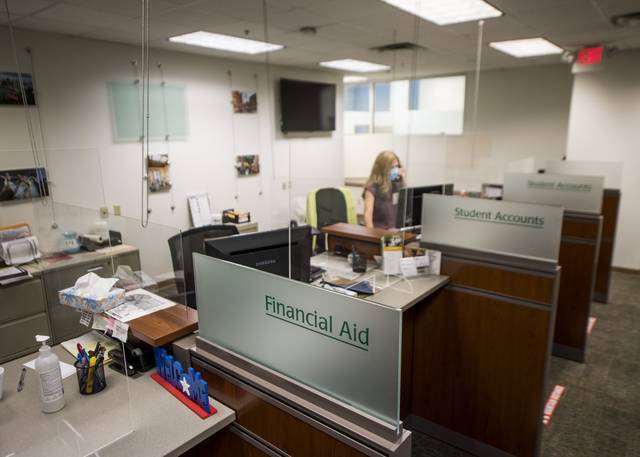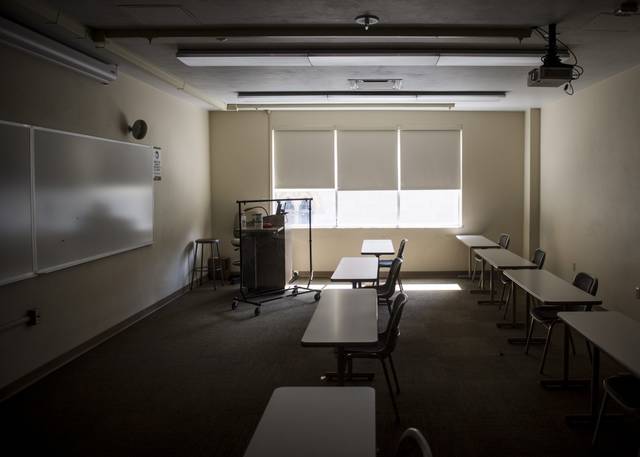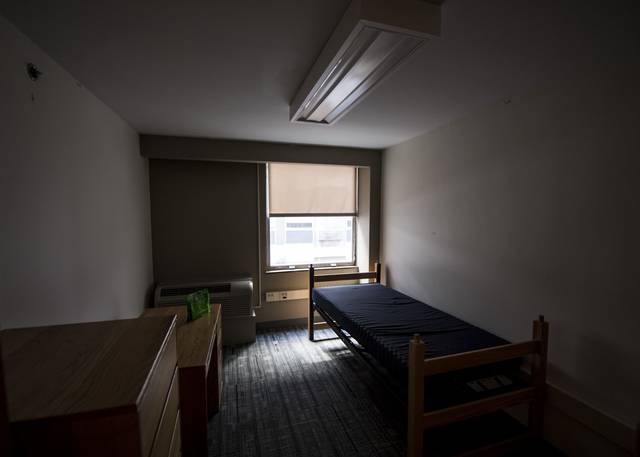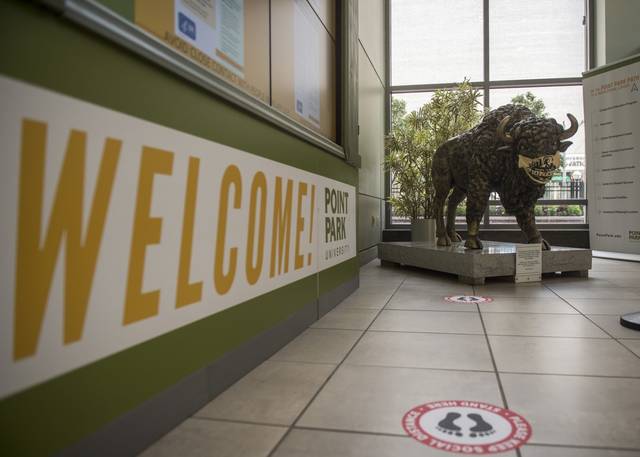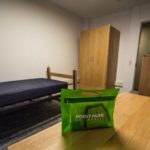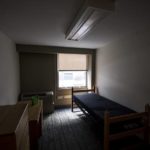Point Park University’s plans for reopening include thorough signage, capacity limits in rooms and elevators and a lot of Plexiglas.
As students prepare to return to campus this fall, university leaders have implemented a variety of new measures to promote social distancing, mask-wearing and other safety protocols to prevent the spread of covid-19. Point Park joins the hundreds of universities across the country that are implementing new protocols and facility changes in an effort to make face-to-face learning safe again.
The first day of classes – both in person and virtual – will be Aug. 31.
“We’re using the advice of the CDC, Department of Health,” said Christopher Hill, vice president of operations. “And then as they change, we morph with them.”
Hill said the adjustments to facilities began as early as April. Buildings like Academic Hall, the university’s campus center, are plastered with informational signs that forbid students and faculty from entering without a mask or if they are experiencing symptoms of the coronavirus.
The front desk, as well as the help desks in administrative offices like Financial Aid, is guarded by Plexiglas barriers. Markings on the floor designate where students should stand as they line up to take the elevator – which only permits five students at a time.
In classrooms, class sizes have been reduced to allow greater space between desks. With Point Park’s “hyflex” learning model, half of students will attend class in person while the other half attends virtually. The university is offering a variety of learning options for students to choose from, including models that are fully online or in person, and a few different hybrid options.
Common areas in the dorms will be roped off, Hill said. A no visitor policy will keep students from bringing people from outside the campus community into the buildings, as well as students from other dorms. Even shared bathrooms will have certain sinks turned off and taped to prevent users from getting to close to one another as they wash their hands.
At the same time, said Keith Paylo, vice president of Student Affairs and dean of Students, the university is planning some in-person and many virtual events in an attempt to keep students engaging with one another.
“We are in a new normal, we get it,” Paylo said. “But we’re trying to keep as much of the normal as we can.”
Still, like all universities, Point Park has had to come up with additional ways to influence student behavior outside of the classroom – encouraging them to take safety precautions even when they’re off campus. Colleges everywhere already struggle to get students to comply with certain safety rules — covid-19 precautions are now an added challenge.
Paylo said students will be asked to sign a “Pioneer Pledge,” and an acknowledgment of risk. President Paul Hennigan said leaders from all 11 universities in the county have been speaking weekly to collaborate on their approaches to student safety, as well as having weekly phone calls with the Allegheny County Health Department.
The Pioneer Pledge, said Paylo, is meant to show students that keeping a healthy environment will be a team effort.
“It’s to get the sense of community, that we are in this together,” he said.
And just as there would be consequences for a student violating the Code of Conduct, Paylo said, there could be potential disciplinary measures if a student repeatedly violates health and safety protocols.
In the event of an infection or an outbreak, Paylo said the university has established areas for isolation and for quarantine. Food service will deliver meals to students in these scenarios, and the university Health Center will also be checking in on students, he said.
Hennigan said administrators and faculty have learned a lot since the spring, when they had to convert around 1,200 in-person courses to remote in just five days. A student survey found that while communication between the university and its students was satisfactory, the pedagogy of the newly online courses left something to be desired. Hennigan said faculty members have spent the last several months engaged in training to improve online learning.
“We are moving forward and we’re going to do it safely and we’re going to do it well,” Hennigan said.


